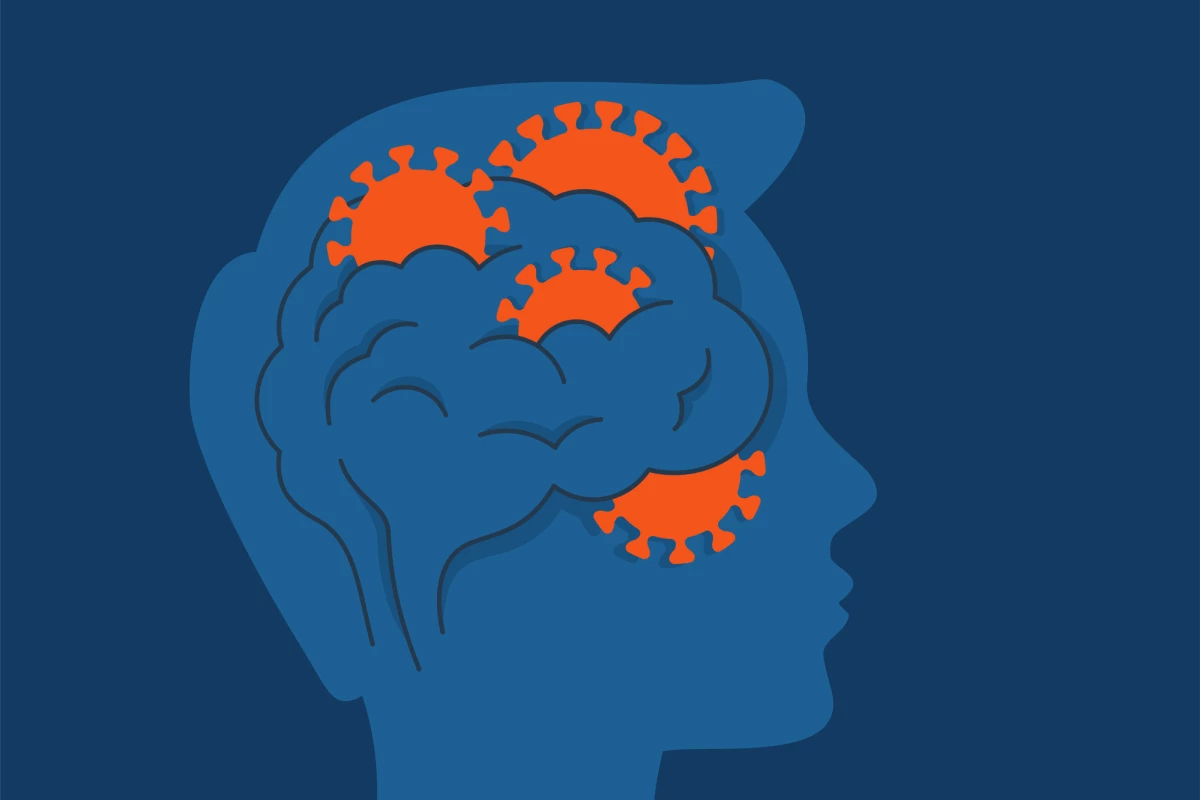A small study has built on a growing body of evidence indicating long COVID symptoms may be linked to abnormal immune system activity. The new research found unexpected markers of inflammation in the cerebrospinal fluid of several patients experiencing persistent brain fog in the months following a mild case of COVID-19.
Led by researchers from the University of California, San Francisco, LIINC (Long-term Impact of Infection with Novel Coronavirus) is an ongoing project studying the impact of COVID-19 on patients in the months and years following an acute infection. The latest study to emerge from this project is an investigation into abnormal cerebrospinal fluid biomarkers in long COVID patients experiencing brain fog.
The small but thorough study took cerebrospinal fluid (CSF) samples from 17 subjects. All of the cohort were around 10 months past a mild case of COVID-19. Thirteen subjects were experiencing persistent signs of brain fog, while the remaining four served as controls with no post-COVID cognitive problems.
While no CSF abnormalities were detected in the control group, 77 percent (10 out of 13) of those experiencing persistent brain fog showed a number of unexpected anomalies. These abnormalities included elevated levels of proteins indicating the presence of neuroinflammation and unusual volumes of immune antibodies.
Joanna Hellmuth, senior author on the new study, said the sign of elevated immune activity months after the virus has presumably been cleared is an indication the cognitive problems that have been associated with long COVID may be linked to lingering inflammation.
“It’s possible that the immune system, stimulated by the virus, may be functioning in an unintended pathological way,” said Hellmuth. “This would be the case even though the individuals did not have the virus in their bodies.”
Interestingly, nearly half of those who reported persistent cognitive problems following a COVID infection indicated a delayed onset of their cognitive symptoms. This reported brain fog did not arise until a month after the first COVID symptom in 43 percent of subjects and 29 percent reported their cognitive problems didn’t appear until two months after initial symptoms.
“The large proportion of participants reporting a delayed onset of cognitive PASC [post-acute sequelae of SARS-CoV-2 ] implies that events occurring after the acute period of SARS-CoV-2 infection may contribute to pathogenesis and respond to early intervention,” the authors wrote in the study. “Mechanisms that may have a delayed onset include microvascular injury, persistent immune activation, and a post-infectious autoimmune response.”
Several recent studies have pointed to immune dysfunction in long COVID patients. Most recently a study in the journal Nature Immunology comprehensively described blood-based patterns of immune biomarkers characterizing the majority of long COVID patients up to eight months after their acute illness. Another robust recent study, led by researchers from Yale University, demonstrated how SARS-CoV-2 can directly infect brain cells.
According to Hellmuth, long-term cognitive problems have been linked with several kinds of viral infections, including HIV and other coronaviruses. So it is plausible to assume infection with SARS-CoV-2 can lead to lingering cognitive problems and these long COVID symptoms can be seen in patients experiencing a mild initial illness.
“If people tell us they have new thinking and memory issues, I think we should believe them rather than require that they meet certain severity criteria,” said Hellmuth.
The new study was published in the journal Annals of Clinical and Translational Neurology.
Source: UCSF




